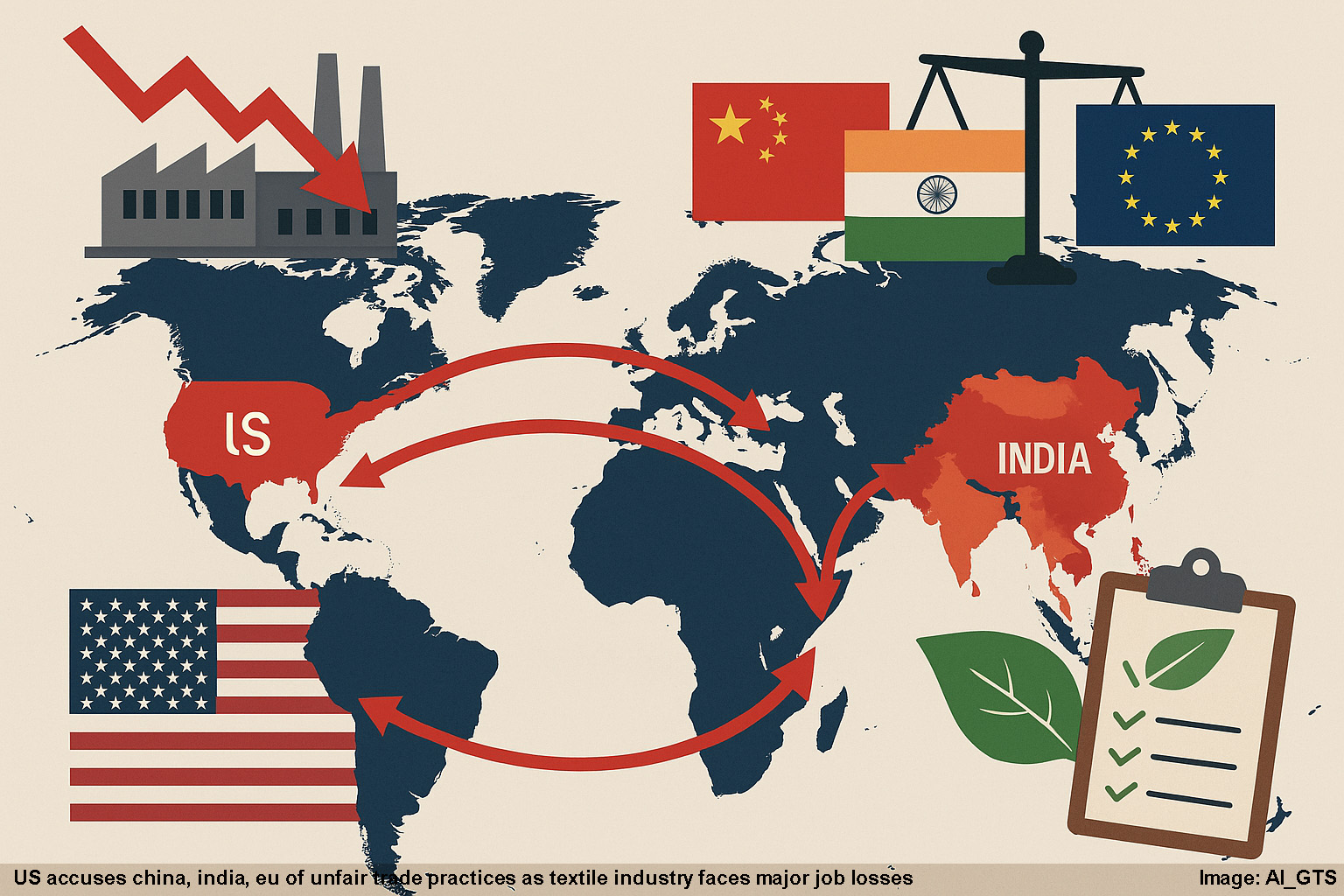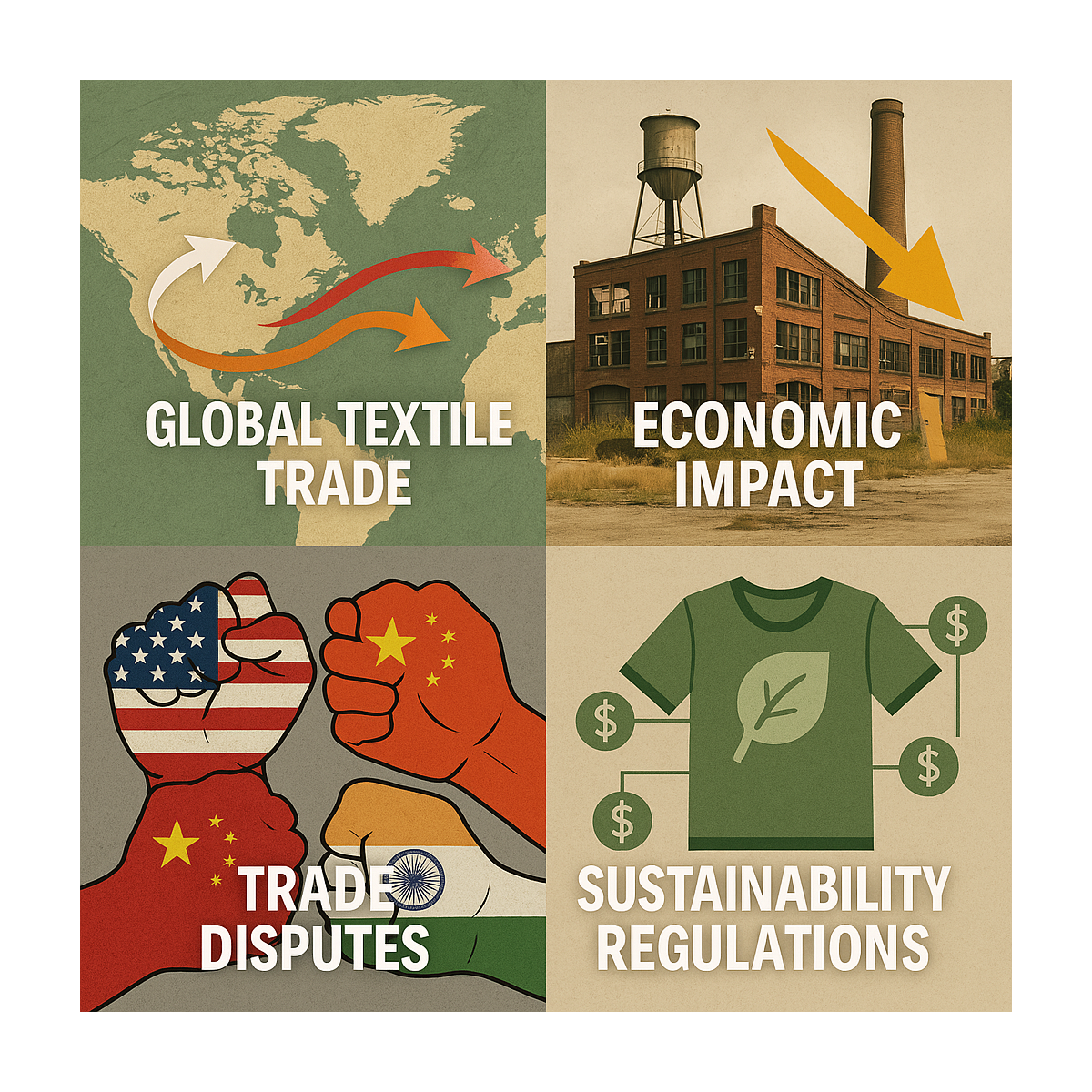
Category: General
Country: United States
Region: Asia & European Union
By Times Now Digital
4th May 2025
Reading time: 2 minutes
The United States has openly criticised China, India and the European Union, among other nations, for engaging in what it described as “unfair trade practices” that are harming America’s domestic textiles and apparel sector. In a statement published on social media, the Office of the United States Trade Representative (USTR) claimed these actions have contributed to the closure of 28 US textile plants within just under two years, particularly affecting industries in the southeast.
 The USTR accused China of enabling its domestic manufacturers to enjoy “unfair competitive advantages” through state-backed, non-market policies. It alleged that these allowed Chinese firms to offer “artificially low prices,” undermining fair competition. According to USTR data, China accounted for 21 per cent of the United States’ USD 79.3 billion apparel imports in 2024. Chinese e-commerce giants were also held responsible for more than 30 per cent of all daily de minimis shipments, which evade standard tariffs and customs checks.
The USTR accused China of enabling its domestic manufacturers to enjoy “unfair competitive advantages” through state-backed, non-market policies. It alleged that these allowed Chinese firms to offer “artificially low prices,” undermining fair competition. According to USTR data, China accounted for 21 per cent of the United States’ USD 79.3 billion apparel imports in 2024. Chinese e-commerce giants were also held responsible for more than 30 per cent of all daily de minimis shipments, which evade standard tariffs and customs checks.
“The influx of cheap apparel has decimated local industries, particularly in the southeast United States,” the USTR stated.
India, meanwhile, was criticised for disadvantaging American exporters through “high tariffs, opaque quality control rules, and a web of unpredictable import licensing requirements.” Washington also objected to India's production-linked incentive schemes, arguing they provide Indian textile manufacturers with an unfair edge on the global stage.
Turning its attention to the European Union, the USTR denounced what it called new “non-tariff barriers” that result in “burdensome compliance costs” for US exporters. It singled out measures such as stringent eco-design requirements under the EU’s Strategy for Sustainable and Circular Textiles, steep extended producer responsibility (EPR) fees, and the roll-out of digital product passports, which the agency claimed had “unrealistic implementation timelines.”
In addition to China, India and the EU, the USTR also named Bangladesh, Vietnam, Kenya, Cambodia, Turkey and Peru as contributors to what it described as an unbalanced trading system.
While the USTR has not proposed specific retaliatory trade measures, analysts suggest that the move may be aimed at rallying domestic political support and pressuring international partners ahead of potential WTO consultations or bilateral talks.
The US textile industry, long seen as emblematic of the challenges of globalisation, has become a focal point in American trade rhetoric, especially during election years when the decline of domestic manufacturing jobs takes centre stage.
Courtesy: msn.com Photo: AI_GTS
Copyrights © 2026 GLOBAL TEXTILE SOURCE. All rights reserved.